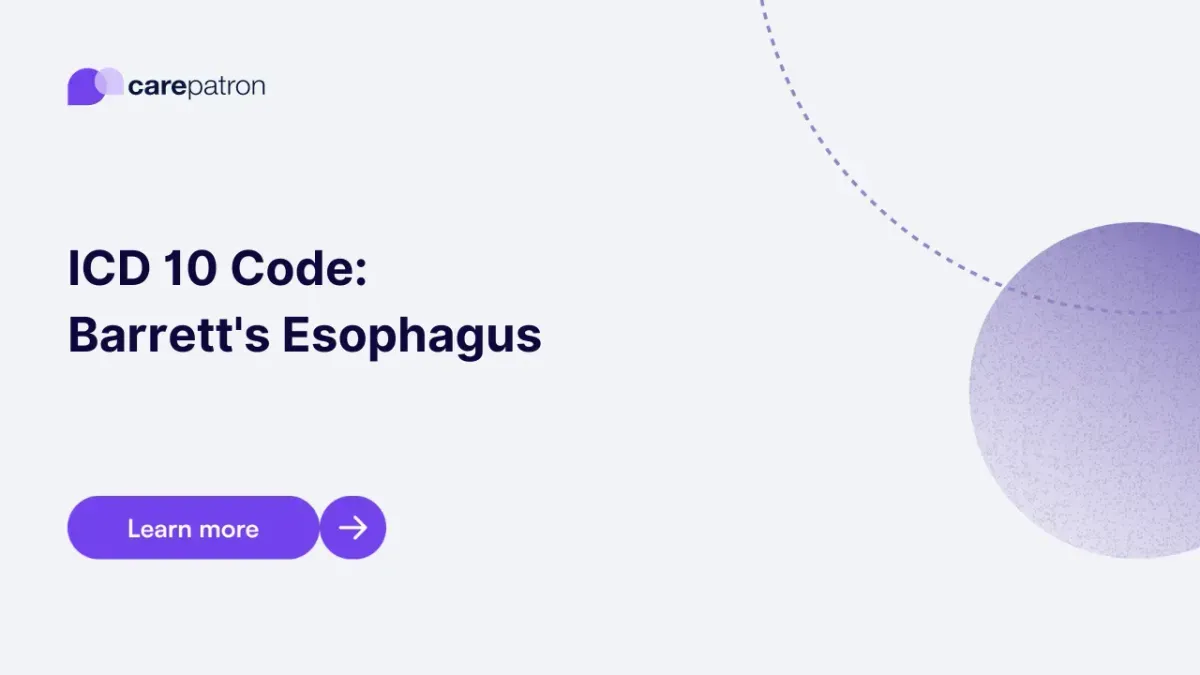
Barrett's Esophagus ICD-10-CM Codes
Learn about Barrett's Esophagus ICD-10-CM codes, including specific codes, clinical descriptions, and billing implications.
Use Code
EHR and practice management software
Get started for free
*No credit card required
Free
$0/usd
Unlimited clients
Telehealth
1GB of storage
Client portal text
Automated billing and online payments
